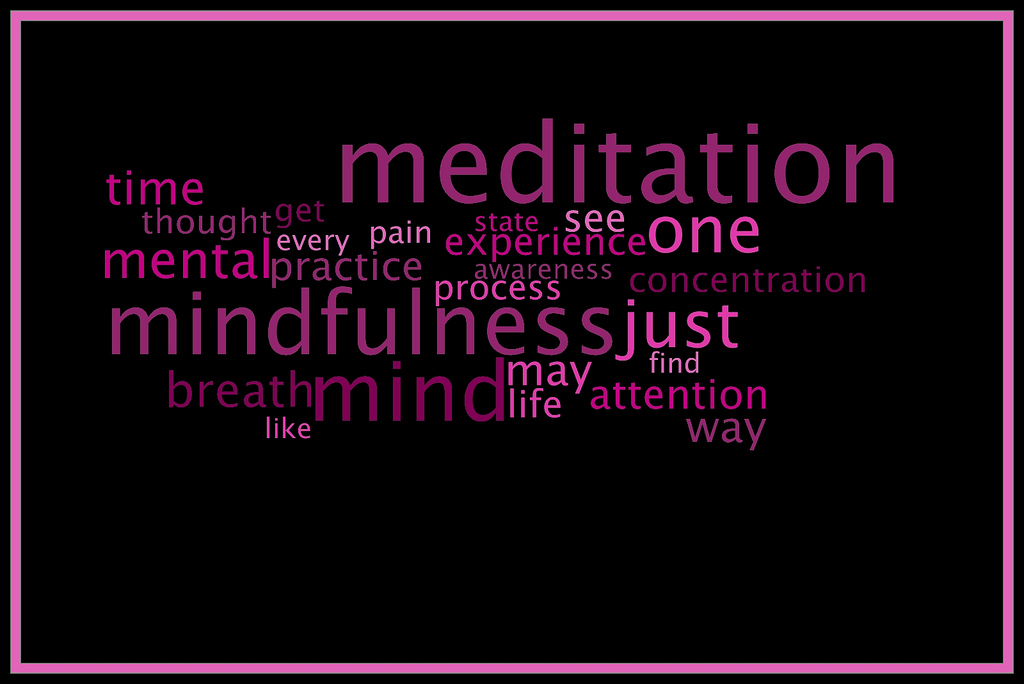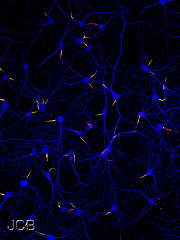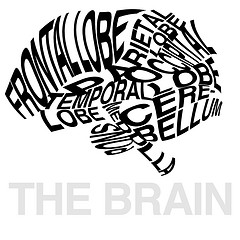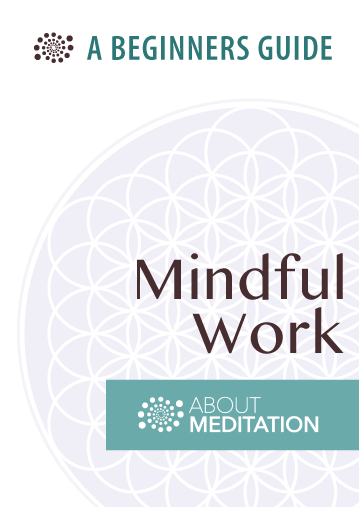 What can neuroscience tell us about mindfulness meditation? Can it, as some people suggest, improve our capacity to change and adapt in stressful situations? And why does a recent article from Harvard Business Review assert that practicing mindfulness is essential to effective leadership?
What can neuroscience tell us about mindfulness meditation? Can it, as some people suggest, improve our capacity to change and adapt in stressful situations? And why does a recent article from Harvard Business Review assert that practicing mindfulness is essential to effective leadership?
Of course, we all want to change. To become better versions of ourselves. The aspiration to grow, learn, and change is as natural for human beings as trees reaching toward the sun.
 But now, a new article from the Harvard Business Review (HBR) highlights just how important mindfulness practice can be when it comes to enhancing our capacity to embrace change and manage stress. In fact, it cites a litany of benefits that are key for anyone performing in a high-level business environment.
But now, a new article from the Harvard Business Review (HBR) highlights just how important mindfulness practice can be when it comes to enhancing our capacity to embrace change and manage stress. In fact, it cites a litany of benefits that are key for anyone performing in a high-level business environment.
And the truth is, the wholesome effects of meditation on our brain and behavior aren’t only relevant for business executives. I think they’re important for you and me too.
Neuroscience Confirms The Benefits of Meditation
 My guess is that these benefits won’t be news to you. But what’s different is how the findings from neuroscience studies are now stacking up in support of these benefits.
My guess is that these benefits won’t be news to you. But what’s different is how the findings from neuroscience studies are now stacking up in support of these benefits.
Why is this important? Why all the fuss around the scientific studies on meditation?
In the West, science is increasingly the gateway for people to discover mindfulness and meditation. That’s quite a shift. Fifty years ago it was LSD, magic mushrooms, and other mind-altering substances.
But now, new studies are emerging every day and they are met by mainstream media with serious interest. On the whole, these studies are confirming the profound promise of meditation to improve our lives.
For me, it’s the reverse. I came to the science compelled by the array of benefits I’d already experienced from 20 years of intensive meditation practice. The science confirms my experience. But it also adds a layer of compelling knowledge and understanding.
You see, my mom’s an earth science teacher and my dad’s a banker, so I’m compelled if not downright excited by the data. There’s no doubt, it grounds and legitimizes the discussion around meditation like little else. Not that it needs it, thank you very much. If you recall, this practice has enriched human lives for nearly three thousand years.
But for many, the stubborn facts from science do elevate the standing of this age-old contemplative art into something that is verifiable, repeatable, and testable. It takes a topic that’s ineffable and roots it in the rational. Amen to that.
So although the article from HBR is written for high-level business executives, I believe the authors’ conclusions are relevant to us all.
Practicing Mindfulness Keeps Our Brains Healthy
 According to the authors: “Mindfulness should no longer be considered a “nice-to-have” for executives. It’s a “must-have”: a way to keep our brains healthy, to support self-regulation and effective decision-making capabilities, and to protect ourselves from toxic stress.”
According to the authors: “Mindfulness should no longer be considered a “nice-to-have” for executives. It’s a “must-have”: a way to keep our brains healthy, to support self-regulation and effective decision-making capabilities, and to protect ourselves from toxic stress.”
“It can be integrated into one’s religious or spiritual life, or practiced as a form of secular mental training. When we take a seat, take a breath, and commit to being mindful, particularly when we gather with others who are doing the same, we have the potential to be changed.”
The article from HBR focuses on the findings of scientists from the University of British Columbia and the Chemnitz University of Technology. This team collected data from over 20 studies to assess the areas of the brain consistently affected by meditation.
Here’s what you need to know.
Cultivating Our Capacity To Self-Regulate
 Among the eight regions of the brain affected by meditation, the HBR article focuses on two: the anterior cingulate cortex (ACC) and the hippocampus.
Among the eight regions of the brain affected by meditation, the HBR article focuses on two: the anterior cingulate cortex (ACC) and the hippocampus.
Let’s start with the ACC. It’s responsible for our capacity to self-regulate and learn from past experiences. That might sound simple, but there’s a lot to it.
Our ability to self-regulate determines how well we can “purposefully direct attention and behavior, suppress inappropriate knee-jerk responses, and switch strategies flexibly.” And it turns out that people with an impaired ACC are more aggressive and impulsive.
Also, studies show that if one’s ACC is cut off from other parts of his/her brain, they lag on mental flexibility tests and have trouble adapting their behavior and problem solving strategies in response to change.
In contrast, meditators “demonstrate superior performance on tests of self-regulation, resisting distractions and making correct answers more often than non-meditators. They also show more activity in the ACC than non-meditators.” Remember, the ACC is one of the regions consistently affected by meditation.
Building Our Resilience To Stress
 The hippocampus is the the part of the brain associated with self-awareness, compassion, and introspection. It’s also associated with emotion and memory. According to a 2011 study at Harvard, this region of the brain showed “significant increases” in grey matter density among people who participated in an 8-week mindfulness program.
The hippocampus is the the part of the brain associated with self-awareness, compassion, and introspection. It’s also associated with emotion and memory. According to a 2011 study at Harvard, this region of the brain showed “significant increases” in grey matter density among people who participated in an 8-week mindfulness program.
It turns out that the hippocampus “is covered in receptors for the stress hormone cortisol, and studies have shown that it can be damaged by chronic stress, contributing to a harmful spiral in the body.” In fact, people who suffer from depression, PTSD, and other stress-related disorders actually tend to have a smaller hippocampus.
It’s clear that this region of the brain is important for all sorts of reasons related to our relational capacities and personal development. And when it comes to performing at a high level and being able to embrace change, the authors note that, “All of this points to the importance of this brain area in resilience—another key skill in the current high-demand business world…These findings are just the beginning of the story.”
“Neuroscientists have also shown that practicing mindfulness affects brain areas related to perception, body awareness, pain tolerance, emotion regulation, introspection, complex thinking, and sense of self.”
Is Meditation A “Must Have” For You?
 So what should you take away from all this? What does the information point to for you?
So what should you take away from all this? What does the information point to for you?
First, it’s clear that meditation is an important tool for brain health. We all need healthy brains to function at a high level. And if you want to live, love, and embrace life as a highly engaged and creative participant, take note.
Mystics, sages, and buddhist teachers have extolled the benefits of meditation for millennia. But now there’s a clear message in the science. Meditation isn’t merely a mystical curiosity. I wouldn’t go so far as to say it’s a mandate, but based on the evidence, I think the “must have” designation applies well beyond the world of business executives.
And these days, if you pay careful attention to the data, you might might find yourself irresistibly compelled to meditate. Seriously, what do you have to lose? Because it’s getting very clear what you have to gain.
If you want a simple way to learn meditation, try our free How To Meditate mini course.




A life without meditation looks very confusing, without fulfillment, and ease. This is the universal mind you are connecting to. It will help bring balance to your life so you can live it more efficiently. I provide soothing tea recipes for mental clarity here: http://jessopal6.wix.com/meditation-station
Hi Jess, Thanks for the feedback and for sharing your resources.
Great article with a lot of relevant highlights on brainscience. Very useful for my work as an MBSR teacher and for my next seminar on mindfulness and science. Thanks a lot!
Hi Merethe,
Thanks for your feedback and I’m really happy to hear that this information is useful for your work teaching MBSR. That’s awesome. Good luck on your upcoming seminar!